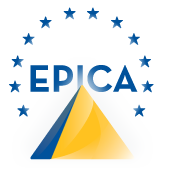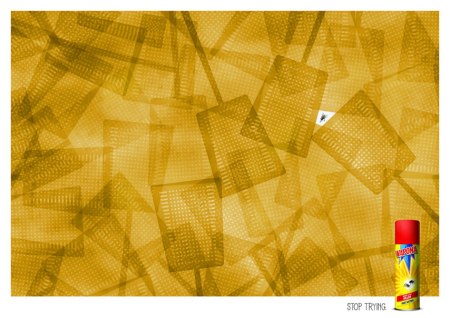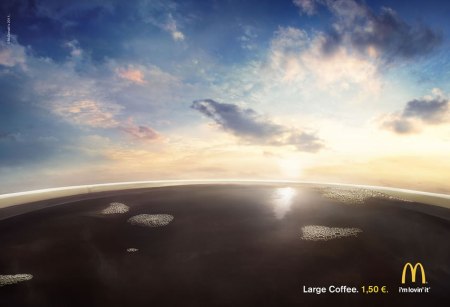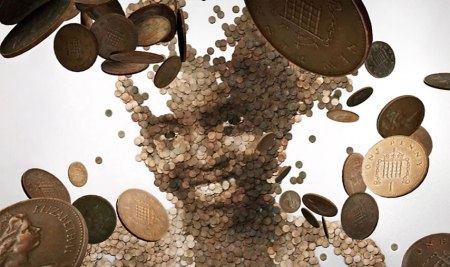 You don’t have to look far for this year’s Big Theme in the Epica creative advertising awards. After 25 years as a Eurocentric awards scheme, with a nod now and then to the wider EMEA hinterland, Epica finally went global, welcoming entries from the dynamic emerging markets of Brazil, Argentina, India and China – not to mention the biggest creative challenger of the lot, the USA.
You don’t have to look far for this year’s Big Theme in the Epica creative advertising awards. After 25 years as a Eurocentric awards scheme, with a nod now and then to the wider EMEA hinterland, Epica finally went global, welcoming entries from the dynamic emerging markets of Brazil, Argentina, India and China – not to mention the biggest creative challenger of the lot, the USA.
A recalibration of award winners – agencies, networks and countries – was only to be expected. It comes as no surprise, therefore, that three out of the top four awards – the Epica d’Or or grand prix – went to countries that had never before won a grand prix.
What didn’t change was the judging principle. Epica is unique in representing the choice not of the creative community itself but of experienced journalists drawn from trade magazines in over 24 countries. I would not wish to give the impression that their judgement has been skewed by an influx of jurors from the new world, because that would be entirely untrue. The panel remains, for now at least, what it has always been: essentially European. The new challenge is the enlarged scope of their perspective.
Enough of the preamble. Who got the big prize? That’s normally taken to mean the film Epica d’Or. And the answer is: a total outsider from Denmark. When I say ‘total’, I mean total: the campaign was produced not by an agency, but by the in-house communications team of coach operator Midttrafik. Simply stated, the problem with coach travel is it appeals to the head, not the heart. It offers a no-nonsense, value-for-money alternative to other modes of transport, but “cool” it is not. The creative solution proferred by Midttrafik is a piece of burlesque called “The Bus” that humorously highlights coach travel’s unglamorous practicalities: comfy seats, panoramic views, acres of space, 24/7 availability, special bus lanes, and experienced, reliable drivers who take the strain. See the film a couple of times and you too will be saying, “Ja, still cool,” and “Yeah. Din es ‘street'” with a Danish accent. Watch out for the young guy on an orange motocross bike: his expression is a treat.
While the campaign creatives may be amateurs, direction and production are slickly professional. Step forward Marc Wilkins/RARE and M2Film respectively, who managed to make the whole thing on a budget – I’m told – of only €200,000. “The Bus” also took top prize – as it must do to qualify for the Epica d’Or, a gold – in the transport & tourism category.
Runner-up for the top prize – and also winner of the corporate image category – was Marcel Publicis’s epic “Cartier Odyssey”. Filmed with icy majesty, it is a lapidary hommage to the life of Louis Cartier on the occasion of his 165th birthday (165th? Don’t ask why – we’re talking high fashion here) which deploys the watchmaker and jeweller’s iconic panther as its leitmotif. Beautiful – and yet there is a chilly emptiness at its heart. What exactly is the point of this 3 minute 30 second historical travelogue, supposedly made for the cinema?
For my money a good overall winner would have been “Follow the Frog”, devised by the Rainforest Alliance and Los Angeles agency Wander. But it was scored in the public interest category, which by definition excludes it from consideration for the top film or print prizes. The Rainforest logo is a kind of kite mark, reassuring consumers that the product in question has signed up to a prescribed set of environmental standards. The campaign – long enough for cinema but meant for viral – needs little other explanation. As you will see:
Long, isn’t it? Indeed, if there is a general criticism of this year’s film crop – which is considerably better than last year’s – it is encapsulated in the word “overblown” – too long, too self-indulgent and too reliant upon humour. Here’s an example of what I’m talking about from Canal+ and BETC, “The Bear” – which won the direction and cinematography category and was a runner-up in media:
It’s a mini-film in its own right, which is all very well if you’re the next Ridley Scott with designs on Hollywood. But whatever happened to the discipline of the 30-second spot? Well, it’s here, in this Aldi/McCann Manchester offering (actually 20 seconds long). Not new, I know – but as a seam of inspiration it’s seemingly inexhaustible. It won gold in the confectionery & snacks category:
Print winners: what can I say without a despairing note in my voice? It’s a fading format, with one or two redemptive examples of excellence. The overall winner this year – a first from Finland – was McDonald’s “Large Coffee”, devised by DDB Helsinki:
It’s probably better as a candidate for the outdoor prize, but no matter. That went to the Microloan Foundation’s “Pennies for Life”, devised by DLKW Lowe. Think wishing-well meets poster in an innovative digital format and you’re half-way there. Microloan is a charity that supports women in Africa setting up their own business. The idea is that you contribute virtual spare pennies via your smart phone, and watch the digitally-generated poster image take shape as the coffers swell:
While on the subject of outdoor, one of the cleanest examples of the genre was “Stop Trying”, a gold winner in the household category devised by Herezie (a French agency) for Vapona. Not desperately original, but classic: strong, simple colourful imagery is complemented with unmistakable branding in the bottom right-hand corner. Brownie points to Herezie for pulling it off in a difficult, low-interest category:
And finally…
- Germany once again topped the rankings, with a total of 66 awards, including 9 gold winners.
- Britain moved up from fourth to second, at the expense of France and Sweden, which were third and fourth respectively. It won 56 awards but an unsurpassed 13 golds.
- Top agencies were Jung von Matt Hamburg, with 16 awards (including two golds), followed by last year’s winner Forsman & Bodenfors, Gothenburg, which captured 10 awards and two golds.
- Most successful network was DDB, with one Grand Prix and 8 golds. Next in line were Leo Burnett and Publicis Worldwide.
- More on the awards here.





 Posted by stuartsmithsblog
Posted by stuartsmithsblog